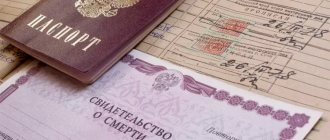The distribution of the inheritance of a deceased person occurs among the direct heirs by will or by law. Typically, the property of the deceased is divided among close relatives. What to do if there are none? In this case, you need to start looking for distant relatives.
In the absence of a will, the task becomes much more complicated. This document usually specifies all relatives and the conditions for dividing the property of the deceased. If there is no will, then current legislation provides for the distribution of the property of the deceased to all legal heirs.
Moreover, the distribution does not depend on the order of priority, the presence of relatives with obligatory shares, their residence and other factors. Close family members do not always find out in a timely manner about the death of a relative or that he has property that is subject to inheritance. How to find the heirs of the deceased?
Searching for roots: who needs it?
For those who want to feel part of a huge whole.
After all, the history of every family is fraught with an incredible number of secrets and discoveries, troubles and joys, happy and tragic stories that will make you feel that you have an incredible legacy behind you. And you don’t have to be a distant relative of princes and counts to feel like part of history. The opportunity to find out who your predecessors were is an invaluable wealth that cannot be measured in material units.
Some people want to understand who their great-grandmother was, some want to find the trace of a relative who disappeared decades ago, and others want to find out where the remains of their grandfather who died in the Great Patriotic War are buried.
The goals are different, but they have one thing in common - the desire to find answers to exciting questions about the origins of their family in the mists of time. In any case, the research process can turn into a real adventure and be remembered for many years.
Why should a modern person know his ancestry?
There are actually many reasons. Everyone chooses the one that is closer to his life ideals or even goals. The main one is strengthening family cohesion and community.
Saying by Gustav Meyrink about the family tree of every person
Many at a certain moment stop in this endless flow of life and think about who they really are, what place they occupy in the world, what unites them with their family.
A person must know his ancestry, if only in order not to feel lonely, to know that he is united with this world by several more things than momentary (on the scale of history) hobbies or work.
Each family has its own legends, there are personalities of whom the family is proud and passes on the story of their life from generation to generation.
There are also several other common reasons that encourage people to start studying their ancestry:
- Preserve the memory and history of a kind. A person who does not know his roots, who does not remember his relatives and their traditions is doomed to oblivion. Without knowing your gender, it is easy to succumb to the processes of globalization, social consciousness and lose your individuality. In ancient times, knowledge of one's ancestry was used by the ruling elite to recognize their status and confirm rights to merit and property.
- Chronic diseases or finding your “place of power” . For those who do not like to indulge in philosophical speculation, there is a very practical reason to study the history of the family. If you have a clear picture of the lives of your grandparents, great-grandparents and great-grandparents with their diseases that appear with age, you will have the opportunity to prevent the appearance of such abnormalities in yourself, as well as protect your children from diseases. Recently we can talk about genetic genealogy. This industry is expensive and not accessible to everyone.
- The emergence of more defined moral contours . Each of us is, first of all, a product of upbringing. In other words, we adopt most behavior patterns in certain life situations from our parents or guardians. The stories of fathers and mothers about childhood, about the values that prevailed in families (that is, were passed down from grandparents), about relationships within the family help shed light on a lot. It becomes clearer why in some situations you behave the way you do.
- A sense of cohesion and the transfer of knowledge to next generations . A person needs a person - this is a simple truth. People who feel like they are part of something bigger are no longer alone. So, when searching for information about your own roots, there is a high probability that you will find kindred spirits among your relatives.
- Understanding yourself and the world around you . Imagine that while researching your family tree, you learned that most of your maternal relatives were mathematically minded and were engineers, technologists, and perhaps even scientists. You yourself can also be a programmer, just try yourself in such a profession. Such knowledge about ancestors helps to find the right place in life, and finally stop asking the question “who am I really?”
- Strengthening self-esteem . This aspect is important for children, because they feel the need for community much more keenly. They become more confident when they have someone to be proud of. It is important for them to be able to be proud of their relatives, set them as an example, and focus on them (even if they are distant representatives of the family). This helps shape the child's personality.
- An opportunity to better understand the world . Experiences that involve blood ties are felt more acutely. Through such a prism of unity, we can perceive the world around us, the events of history, everything good or bad much more clearly. What we get from experiencing such emotions is priceless, it creates a wiser person.
- Opportunity to make new acquaintances, business and friendly contacts . A clear understanding of blood ties allows you to maintain relationships with many relatives, and this is very useful, because all these people have different professions, interests, connections that can help in solving certain practical issues and become a source of new impressions.
Some people make a list of events of sorts. Surprisingly, memorable dates can be repeated, for example, a great-granddaughter will be born on her great-grandmother’s birthday.
On certain dates, you can also remember your loved ones, write a customized note to the church, give to those in need, or gather at home with relatives to remember.
Where to start research of this kind
First, ask the oldest family members about relatives living in other places. What do they remember about their parents, brothers and sisters, when they were born and what their names were, where they lived and where they moved?
Perhaps someone knows the burial places or the house in which your great-great-grandfather was born is still preserved. Any information would be valuable. Even what songs they sang in the village when they had a wedding, what clothes they wore and what they ate, how they liked to spend their time and what animals they kept in the house. Perhaps this information will not help us find out our ancestry up to the seventh generation, but it will definitely bring distant times closer to us and help us understand people who lived decades ago. Don’t forget to record the conversation on a voice recorder so that later you can transcribe the recording and transfer it to paper. Plus, the living voice of a loved one will definitely stay with you, and important details will not slip out of your memory.
Real estate and movable property
To understand how to look for an inheritance, you need to define what is real and movable property.
- Real estate is objects that cannot be moved without causing serious damage. These include: land, house, apartment, unfinished housing and others.
- Movable property includes everything that is not immovable. This is, for example, a car, jewelry, money, securities.
How to find information about your ancestors in the archives
Before heading to the state archives, start by clearing out your home shelving.
Pay attention to photographs, documents on marriage or divorce, birth and death certificates, documents on graduation. At the same time, look not only at the front, but also at the back of the document or photograph. Important notes may remain on it that will help in further searches.
This is especially true for photographs: many people signed the names of the people depicted, as well as the date and place where the photo was taken. And in the photograph itself you can see the name of the station or find out in what rank your great-grandfather ended the war.
Request to the notary chamber
You can personally go to the notary’s office and fill out an application on the spot or fill out an application to search for a will, and then send it by mail.
As noted earlier, this document is provided only to a notary, since information about the heirs is confidential. You can find a sample form on the Internet.
If the person submitting the request is not an heir, then the relevant information will not be provided to him. But if the citizen who sent the request to the notary chamber is a legal heir or is registered in the will, then he will be provided with all the required information.
How to find your family of ancestors by first and last name: on the Internet and in the archive
It is logical that those who seek to find information about their roots try to find their relatives by searching by last name. On the Internet you can find many sites devoted to research by experts in the field of family history. Perhaps you, too, will be lucky to find a clue that will lead to the traces of your ancestors.
There are special reference books and dictionaries where you can find a brief history of your surname. Usually, it dates back to ancient times, and is often formed from the nickname, name, profession, nationality, noticeable character traits or appearance, as well as the place of residence of your distant ancestor.
Thus, the surname Goncharov was built on the principle of “son of a potter - potters.” The surnames of representatives of princely families usually came from the name of the lands where the family's possessions were located. Vyazemsky and Meshchersky are direct examples of this.
Think about how your last name was formed; perhaps it will say a lot about your relatives.
How to beautifully design your pedigree: 5 original ideas
We have reached the final stage of how to formalize our pedigree. Of course, now data can be structured electronically in doc or pdf format. There are other interesting ways:
Family tree
The pedigree is presented in the form of a family tree. Designed on A2 or A1 format, on wood, photo canvas, foam cardboard. In some cases it can be done by the artist in oils. A family tree will decorate any interior and help preserve the memory of descendants for many years.
Family tree of the Pushkins
Family diploma
Gift option for designing the history of a family name. Not genealogical research. A bright and unforgettable gift for an anniversary, birthday, wedding. Can be made on wood, photo canvas.
The family diploma indicates probable versions of the origin of the surname, ancient mentions in sources, and the most famous representatives of the surname.
Family heirloom diploma. You can find other works and designs on our website.
Family coat of arms
An unusual way to emphasize the uniqueness of your family, your surname, is to develop a family coat of arms for your family. The family coat of arms includes an image of a coat of arms with a motto, where each element has its own meaning. In addition, some designs provide a description and interpretation of each symbol.
Family coat of arms created by specialists from the Family Surname site
Genealogy book: family history
Some photographs and information about the family can be placed in a pedigree book or in a magazine style, where there will be not only old photographs, but also information about awards, events from the life of relatives.
Pedigree book, ready-made design
You can add to the design list:
- video film about family;
- family wax seal;
- various cards with family symbols
- and much more.
It is important to preserve and convey to future descendants the memory of one’s family, the heroic deeds of one’s great-grandfathers, and the difficult life during war and repression. A person who knows his roots walks steadily through life and is confident in his actions.
We will answer your questions
Lyudmila Golubeva
Curator of the “Family Name” project, specializes in the study of surnames since 2012 and conducting genealogical research, higher professional education (2003 - 2008), advanced training courses.
Ask a Question
How can you find the roots of your ancestors via the Internet: looking for information about relatives on the Internet
A simple Google search with the first and last name of your relative is unlikely to yield any significant results. You should rather turn to specialized search engines:
- Google Books will help you find scans of thousands of books and reference books. Hundreds of digitized publications from pre-Soviet times cannot be found by ordinary search engines. And with the help of this site, you can simply enter your last name and first name into the search bar and accidentally stumble upon a mention of relatives.
- MyHeritage.com is an international service that will allow you to search through countless archival lists, metric records, audit tales, and burial lists. The site is paid, but there are also options for which you do not need to pay. With its help, you can both find your ancestors and model an approximate layout of your own family tree based on data about their pedigree.
- OBD "Memorial". Almost a starting service for those who know very little about their roots and are trying to understand how to find their family by surname. “Memorial” is a service that helps to obtain information about missing, killed or captured soldiers during the Great Patriotic War. For almost all military personnel, the place of birth and year are written. This makes the search much easier. If you know that your great-great-grandfather died in the war, but what village he was from and where to look for information about him you don’t know, this resource can become a real treasure trove of information. Often the lists indicate not only the name of the soldier and his place of birth, but also the names of his family members who were informed of the death of the soldier. This is not only a name, but also a note about who the person who died is related to. This way you will not only find out the place of birth of your relative, but also the names of his mother, father or wife. This service is also useful for owners of rare surnames. Through a search, you can see the distribution area and find out where its carriers were born and lived. Quite often it turns out that almost all namesakes lived in the same area or even in one small village.
- An important help in how to find information about ancestors on the Internet will be the website of the All-Russian Family Tree. There you can find a whole database and an excellent forum of participants who share their stories of searching for roots, and can also give valuable advice and suggest in which direction to “dig” next.
- You can search more specifically and precisely. If you want to find out about the fate of your relative who died during the First or Second World War, we advise you to turn to the resources “In Memory of the Heroes of the Great War of 1914–1918” and “Memory of the People.” If you are looking for information about a relative who may have been repressed, pay attention to the websites “Everyone’s Personal File” and the “Last Address” project.
- You can view the personal files of relatives who died in the Holocaust on the website.
- For those who know that their ancestors lived in Moscow or St. Petersburg in Soviet or pre-revolutionary times, the address directories “All Moscow” and “All Petersburg” will be an invaluable assistant. Here you can find information about your relative's address, and sometimes about his occupation. These reference books can be viewed on the Historical Library website.
- Something similar to the previous point - Memorable books. Such collections were published in the pre-Soviet period every year in almost every province. They wrote about all the people who held any minor position in the province. Starting from a village doctor or land surveyor to the chairman of the noble assembly. Almost all publications have indexes. You can search for memorial books on the website of the same “Historical Library”.
- A somewhat specific, but also extremely useful resource for those who are interested in how to find the biography of their ancestors is the website familysearch.org. It is a collection of documents prepared by American Mormons. You can search digitized documents from all over the world, including Russia and Ukraine. However, non-Mormons are not allowed to view the data. You can obtain permission if you make an official request to the resource administration.
How to find out the date of death of the deceased online
Despite the fact that the personal information of deceased people is confidential, there are still open databases. They provide the opportunity to find out some information about a person without submitting documents to government bodies and institutions. You will also not need certificates or other documents. One of these databases can be found at: Notariat.ru.
Before searching, it is worth considering that you should enter the person’s full name into the form correctly. Otherwise, the site will not show the information that is needed.
The site is a resource for searching for inheritance cases. If there are inheritance matters associated with a deceased person, then his data can be found here.
- Follow the link to the form;
- Carefully enter the information you have;
- Click on the “Search Case” button.
You can enter any data, including date of birth or date of death. And thus find a deceased person, having a last name, first name, patronymic or year of birth. This service is free. The site has a forum https://forum.notariat.ru, where people search for data and discuss how to search for documents and other information. In order to use it, you need to register on the site and log in with your data.
There are other services that store data of deceased people. It is important to know at least some information about them so that your efforts are crowned with success.
How else can you find information about the biography of your ancestors?
To search for living relatives or descendants of those who have already died, write to the website of the “Wait for Me” program. You can not only send a request to search for a specific person, but also monitor whether lost relatives and friends are looking for you or your loved ones.
You can contact the registry office. Provided that you have your own birth certificate (if not, order it there), you can receive documents from deceased relatives. Using this method, you can find out where your grandmother was born or where your grandfather got married. However, this only works for documents released after the October Revolution. Papers from the pre-Soviet period need to be looked for elsewhere.
Who can claim the inheritance?
After the death of the testator, the procedure for opening an inheritance begins. The notary does not independently search for heirs and does not check information about the death of a person (even if there is a will). Therefore, one of the relatives of the deceased person submits a handwritten application to the notary to open an inheritance.
Rights to receive property arise on the basis of inheritance:
- Only relatives can claim property;
- candidates are divided into queues according to degree of relationship;
- the seventh line contains a mention of non-blood relatives - stepdaughter, stepson, stepmother, stepfather;
- dependents who are not related by blood relationship receive a share of the property, along with the inheritance line.
Another basis for the emergence of inheritance rights is a executed will.
It may include:
- relatives;
- strangers;
- companies;
- charity organisations;
- communities;
- state;
- municipality.
Terms of inheritance
Heirs can apply to receive property within 6 months from the date of death of the testator.
Deadlines are calculated according to the following principles:
- the countdown begins the next day from the moment of death of the testator;
- Weekends and holidays are taken into account;
- if the last day falls on a state or calendar holiday, the period is extended to the next working day.
For inheritance based on hereditary transmission, the period for receiving property is extended to 9 months.
Learn more about the timing of inheritance.
Restoring a missed deadline
Missing the deadline is regarded as the candidate’s reluctance to receive an inheritance after the death of a relative. Therefore, after the completion of the six-month period, it will no longer be possible to submit an application to a notary. On the other hand, there is a procedure for reinstating the deadline. To do this, the failed heir prepares a statement of claim in a federal court of general jurisdiction.
Valid reasons:
- the heir did not know about the death of the testator;
- the candidate could not have known about the abandoned property;
- staying outside of Russia in the absence of contacts with relatives of the deceased person;
- serious disease;
- long business trip;
- helplessness;
- ignorance that there are relatives.
The term can also be restored by representatives of a minor or incapacitated candidate for property.









